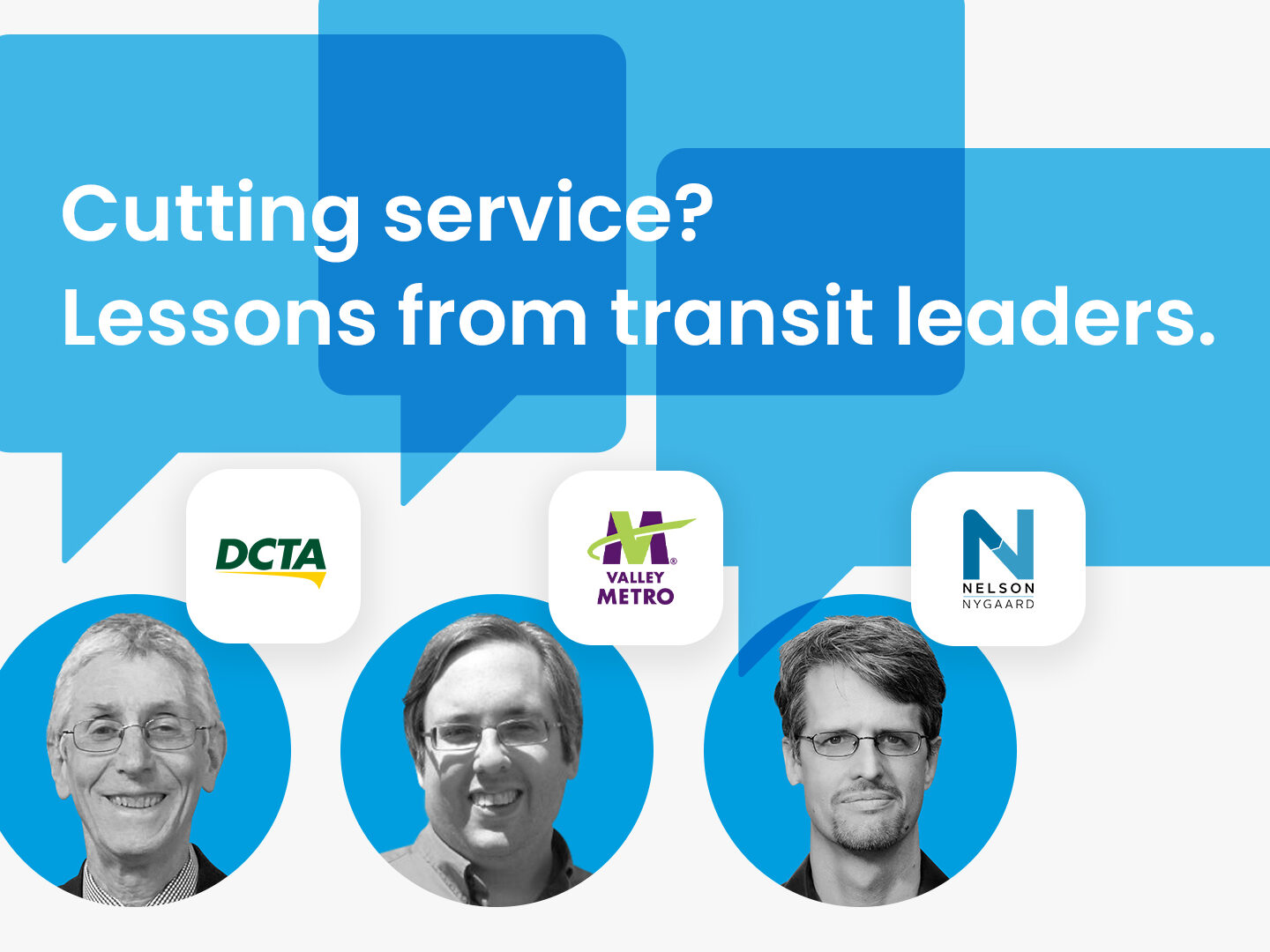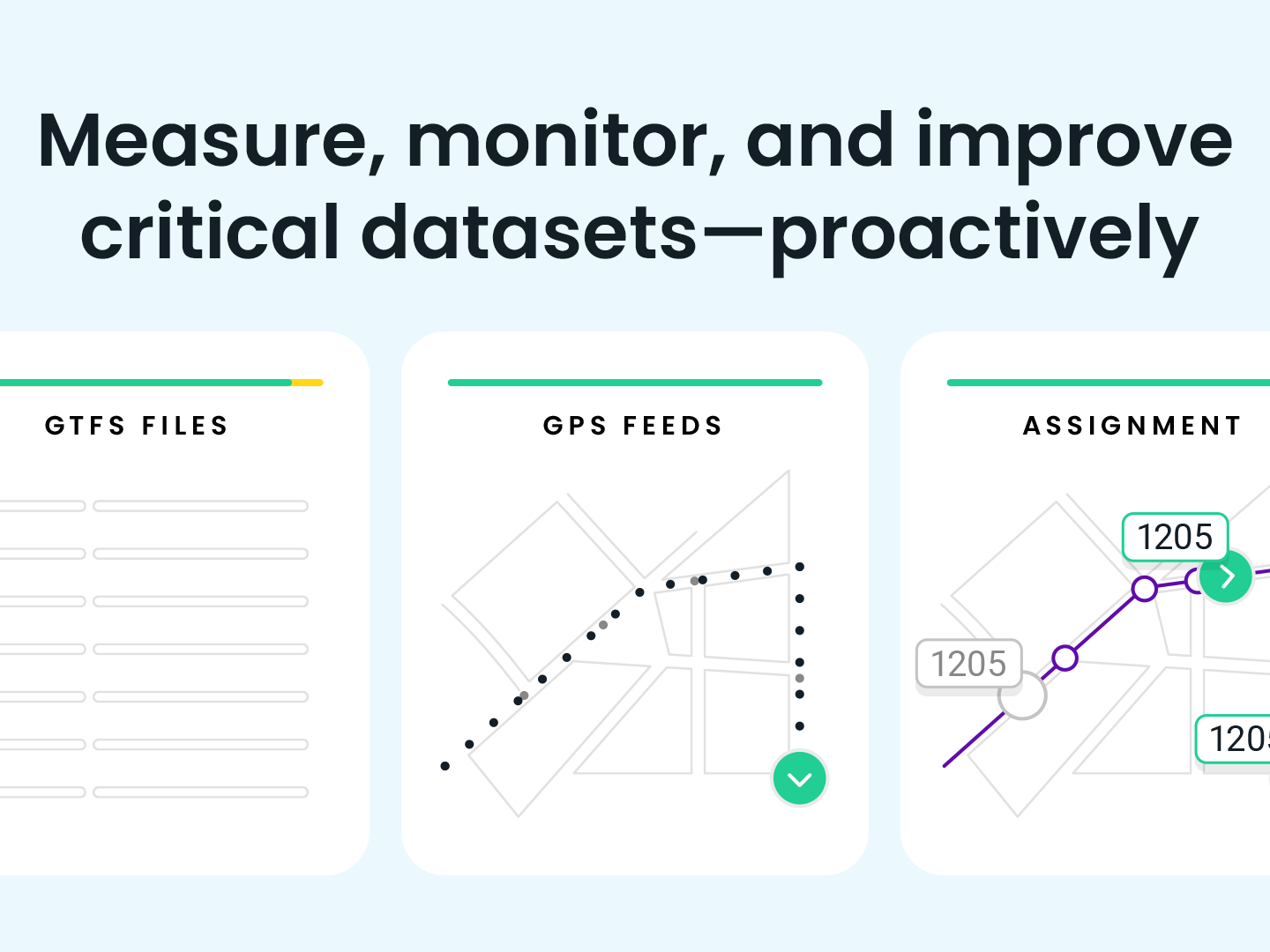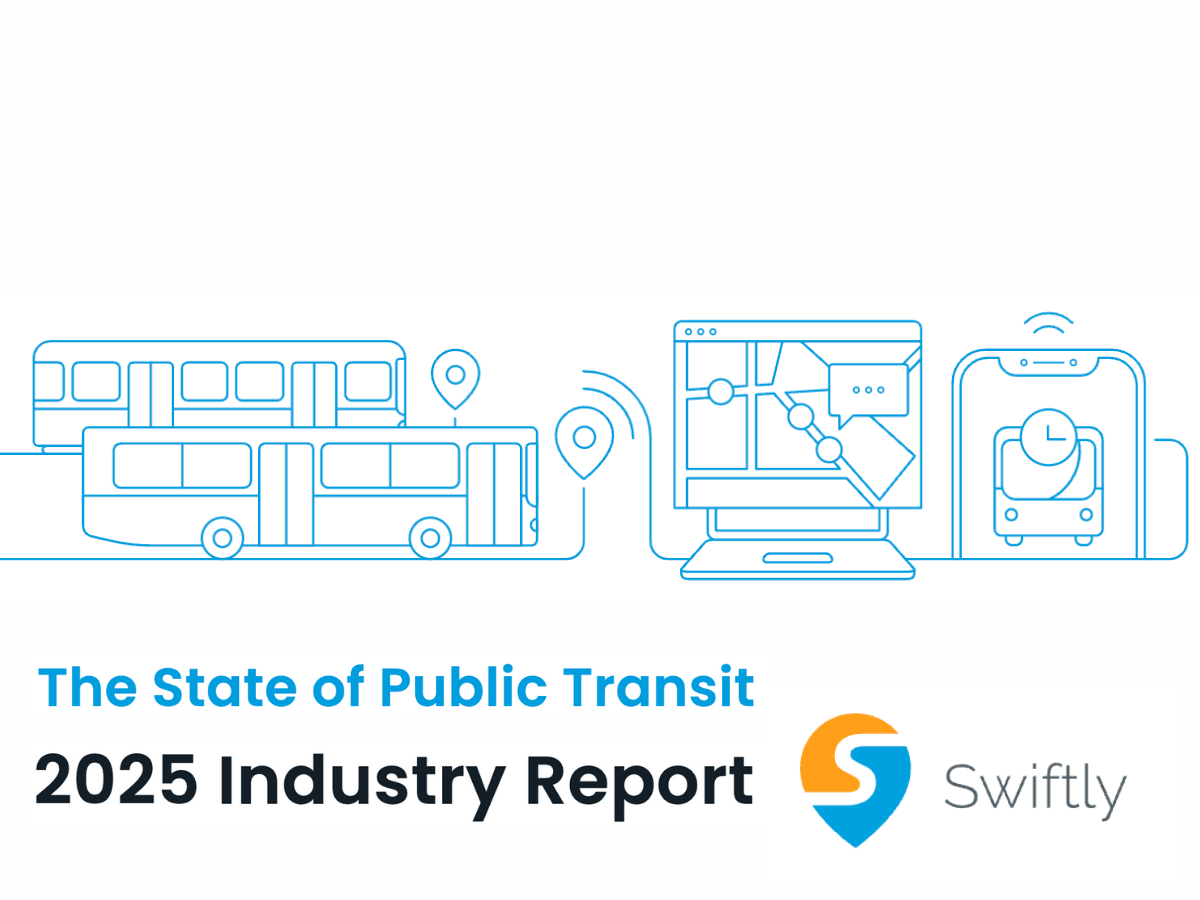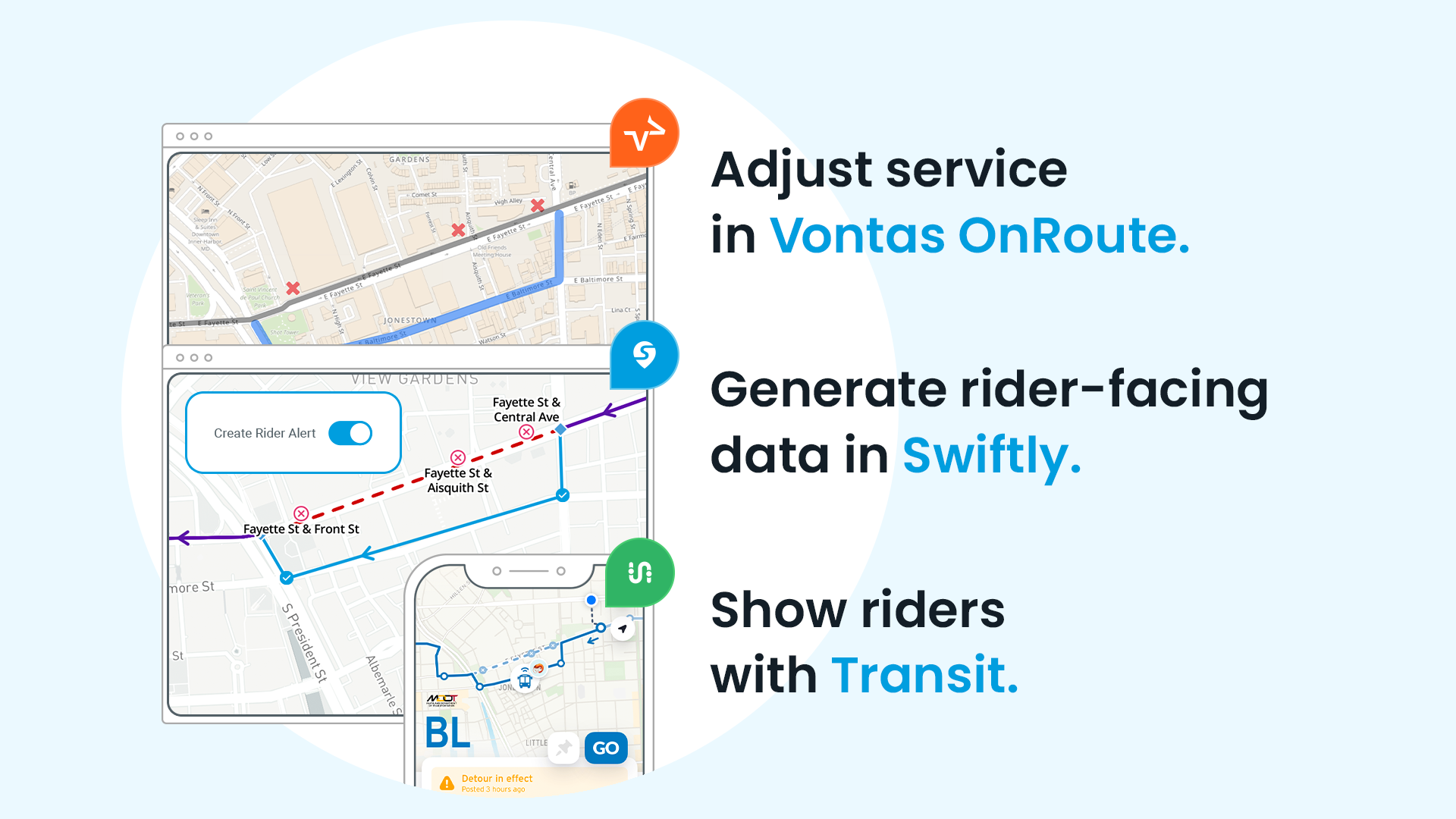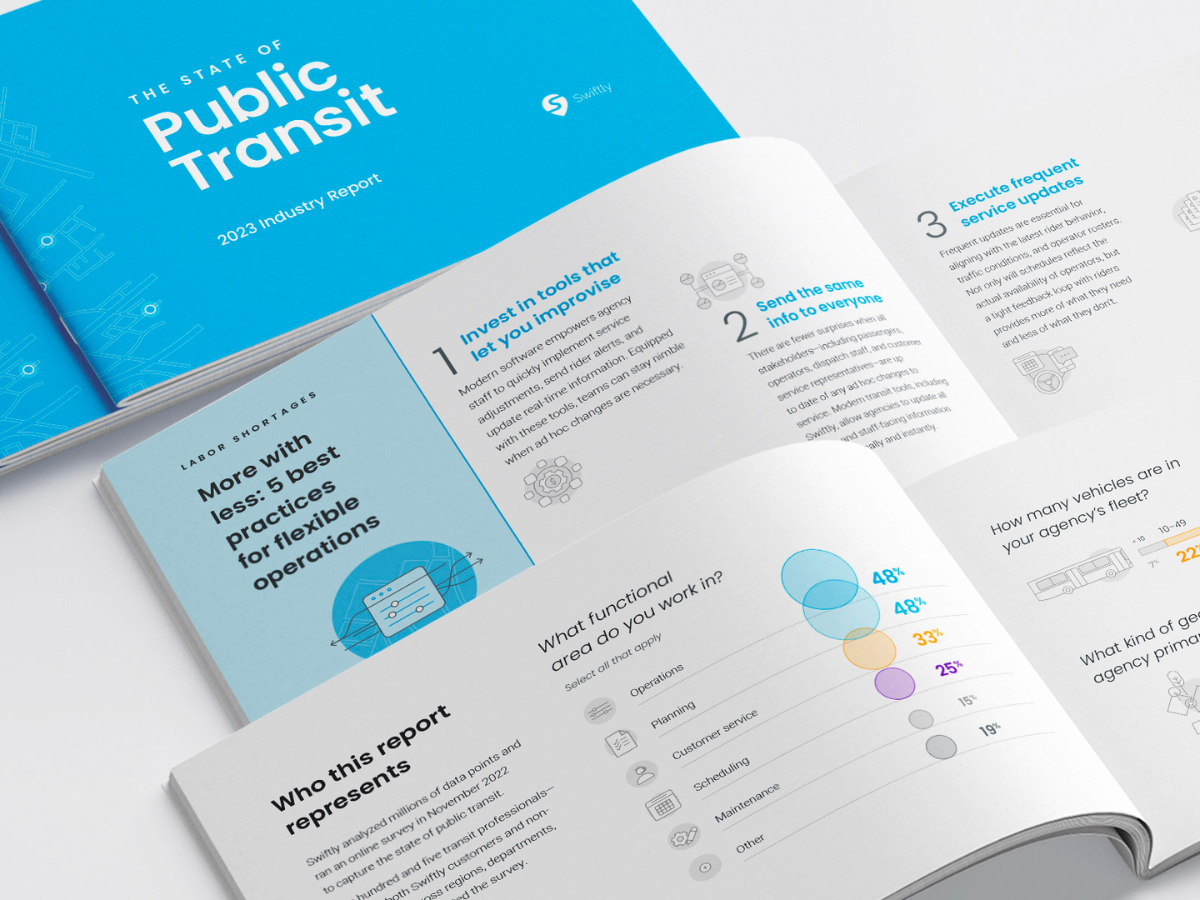If you speak with transit agencies of different sizes across the country about their greatest challenges, one topic is guaranteed to come up every time: the operator shortage.
But the staffing struggles within transit agencies go beyond bus operators. Transit agencies have struggled to fill positions for over two years, with no end in sight. In fact, by some measures, the problem is getting worse. The consequences are missed service, low staff morale, and passengers left with unreliable service.

Our State of Public Transit 2023 report analyzed staffing shortages based on surveys of more than 100 transit agencies. In this post, we will look at the impacts on service, root causes, and tactics to mitigate staffing shortages.
Understanding the Impact of Staffing Shortages
The industry-wide staffing crunch is impacting nearly every department within transit agencies. Operator shortages are most acute (present at 95% of agencies), but other departments such as maintenance (65%) and dispatch (48%) are also impacted at roughly half of all agencies. More than a quarter of agencies are operating below full capacity in customer service (40%), planning (29%), and scheduling (26%).
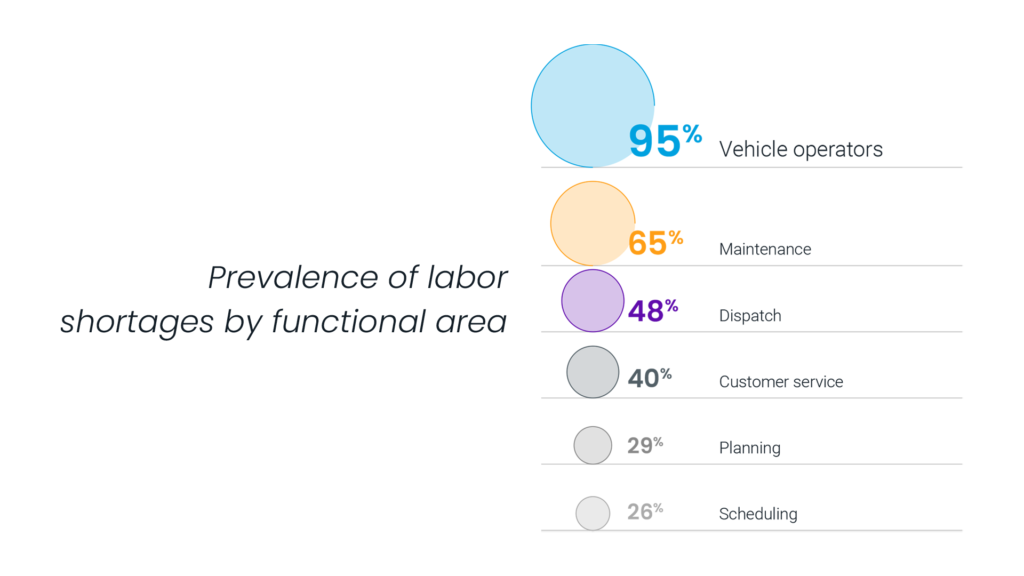
Passengers are feeling the impact where the rubber meets the road. A worrisome 71 percent of agencies report canceled or delayed service due to labor shortages – an increase from 64 percent in 2021. In many instances, passengers are left waiting for a scheduled bus that never arrives, leading to complaints about ghost buses. Proactively communicating these service reductions is one of the key tasks facing agencies as they manage operator shortages.
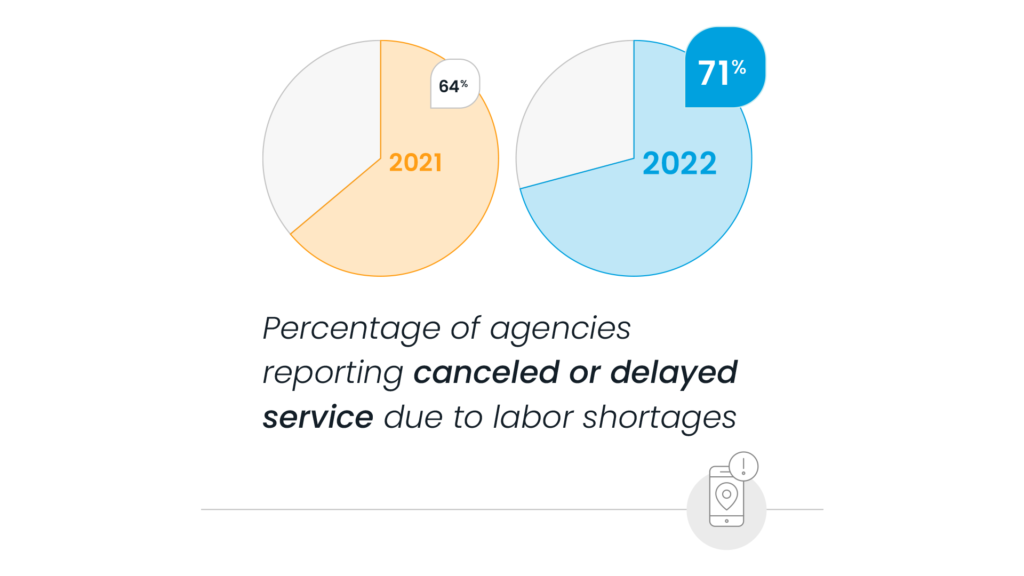
What Are the Root Causes of Staffing Shortages?
According to agencies, there is a convergence of multiple factors driving the shortages. Retirement, inflexible working arrangements, inadequate compensation, and competition from other industries are the top causes of staffing shortages. Other reasons mentioned in survey responses include poor work-life balance, lengthy job application processes, unfavorable hours, out-of-date drug testing requirements, and high stress situations interacting with the public. Respondents also mentioned increased competition from private delivery employers and general low unemployment rates. For detailed survey responses, make sure to download the full report.
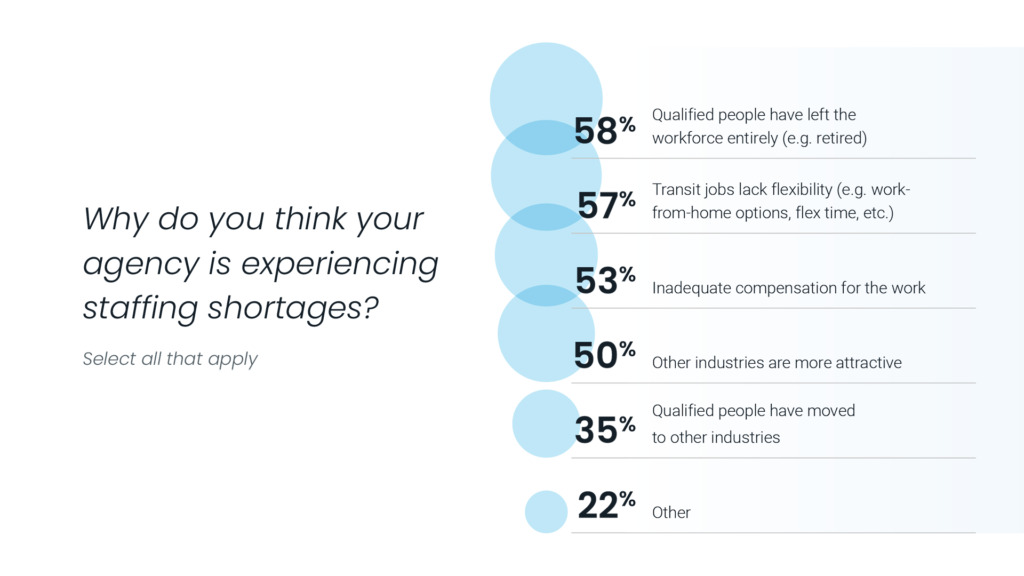
Doing More with Less by Doubling Down on Dynamic Operations
83% of transit professionals expect staffing shortages to continue for at least the next 12 months. This means that for the foreseeable future, transit agencies will be left seeking out ways to do more with less.
Based on our experience working with over 135 agencies, we’ve identified tactics for agency staff to remain agile in the face of challenges to service reliability. Here’s a preview of actions that agencies can take, which is covered in full in the report:
- Invest in tools that let staff improvise
- Share consistent data with passengers and staff
- Execute frequent service updates
- Have backup plans for common scenarios
- Automate repetitive and time-consuming tasks
For operations and customer service teams, this involves a move to dynamic operations, leveraging technology and updated processes. For example, the integration with Swiftly’s Service Adjustments and Rider Alerts products allows agencies like San Diego’s North County Transit District to create Service Adjustments and inform riders with just a few clicks.
Damon Blythe, NCTD’s Chief Operations Officer for Bus, shares the impact of efficient technology in the face of staffing shortages:The operator shortage is a significant operational challenge. We’re doing our best to adjust to this reality. The Rider Alerts integration is part of this strategy. It will give us an added layer of agility when trip changes are necessary.
To address the shortages of planners and schedulers, agencies need to empower staff with more accessible, usable data. Agencies using Swiftly’s Run Times product have reduced their time required to build schedules from hours to minutes and created more efficient schedules to free up resources.
For the full details on how operator shortages are impacting transit agencies and the ways agencies are evolving to respond, download the full State of Public Transit 2023 report.
This article was originally published by Swiftly.



